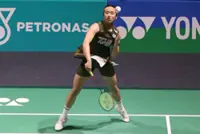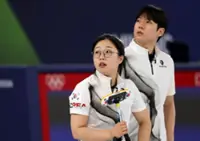In deep concentration: Students at the Ajumma School learning to use the computer. — The Straits Times/ANN
Before classes begin, the corridors of Ilsung Women’s Middle and High School are filled with the sounds of cheerful chatter and lively greetings.
Inside the classrooms, heads are bowed in concentration, and hands are busy copying notes off the blackboard.
This is a scenario not out of place in a normal school, but what stands out are the telltale heads of silver hair and tight curls – characteristics associated with South Korean middle-aged aunties and grannies.
At Ilsung Women’s Middle and High School, almost 90% of the students are in their 70s and 80s.
Unlike other middle and high schools in South Korea which cater to students aged 12 to 18, Ilsung is only for women aged 40 and above who did not manage to receive or complete their education when they were younger.
According to the Seoul Metropolitan Office of Education (SMOE), there are nine of such schools catering to mature students in Seoul, with a total of 42 nationwide.
There are no school fees for such students, which number more than 6,600 across the country on average per year.
South Korea is among the world’s fastest ageing societies, with 19% of its population aged 65 and above as at 2023.
Established in 1952, Ilsung school is the first mature learning institution in South Korea, and made headlines in 2023 when one of its students – 83-year-old Kim Jeong-ja – became the oldest candidate to sit the Korean college entrance exam in 2023.
Jeong-ja was among the 230 Ilsung students who graduated in February 2024 before going on to study social welfare at Sookmyung Women’s University, where her own granddaughter had graduated from.
Currently, the school’s oldest student is 87 – second-year middle school student Kim Gab-neo, who has four daughters and nine adult grandchildren.
She was born in 1937, when Korea was still under the Japanese occupation, as the eldest daughter of a poor farming family in Chungcheongbuk province.
Gab-neo never had the chance to go to school, and her parents were too afraid to teach her the Korean alphabet at home. Under Japanese rule, Koreans were only allowed to teach, write and speak Japanese.
“When we were finally liberated from Japanese rule in 1945, I was eight years old and I tried following the other children to school. I told my parents that I need to at least learn to write my name in Hangul, but they refused to let me go. They said I should help with farm work and take care of my younger brothers instead. I cried so hard then, like a baby,” she told The Straits Times.
Gab-neo’s father died when she was 16, leaving her mother and her to raise her two younger brothers, who went to school but did not do well.
She put her own youth on hold and only got married at 30, an age considered old for marriage at the time.
Her husband was sickly and died 17 years into the marriage, leaving her to raise their four daughters by selling shoes.
“I had to focus only on moving forward because I had to raise them all. While my aim was to marry my daughters off to good husbands, I also wanted them to receive an education first because I have always regretted not being able to learn myself.”
After decades of putting her family before herself, Gab-neo finally heard about an elementary school for women like herself, and enrolled when she was in her 70s.
She had to take some years off in between to care for a daughter who had cancer, and then most recently for back pain, but she re-enrolled in March 2024, determined to continue her studies.
Like her, her classmates, Han Yu-hyeon, 77, and Seo Seon-Ja, 76, relish the chance to make good friends in school, something they missed out on in their youth.
The pair were happily chatting during a class break, not unlike schoolgirls a fraction of their age.
Han, whose commute to school is one hour each way, said: “It’s too hard for us at our age to have to transfer trains and take the long commute here. But school is so interesting! The best thing is that I get to learn Korean and English. It may seem like something very ordinary, but when I am able to read things that I couldn’t before, I feel so happy!”
The school has seen some 60,000 students pass through its gates since 1952, and wants to help as many of them as possible to go on to university.
The school marks in 2024 the 18th year in a row that 100% of its high school leavers qualify for university.
When asked if it is her goal to make it to university, Gab-neo paused before replying: “By the time I make it to university, I will be in my 90s. I don’t know what to study in university either. I never had any ambitions when I was young, but none of us had at that time, when life was already so hard.
“I don’t know what the future will bring, but I’m happy for now that at least I can read and write!” — The Straits Times/ANN





